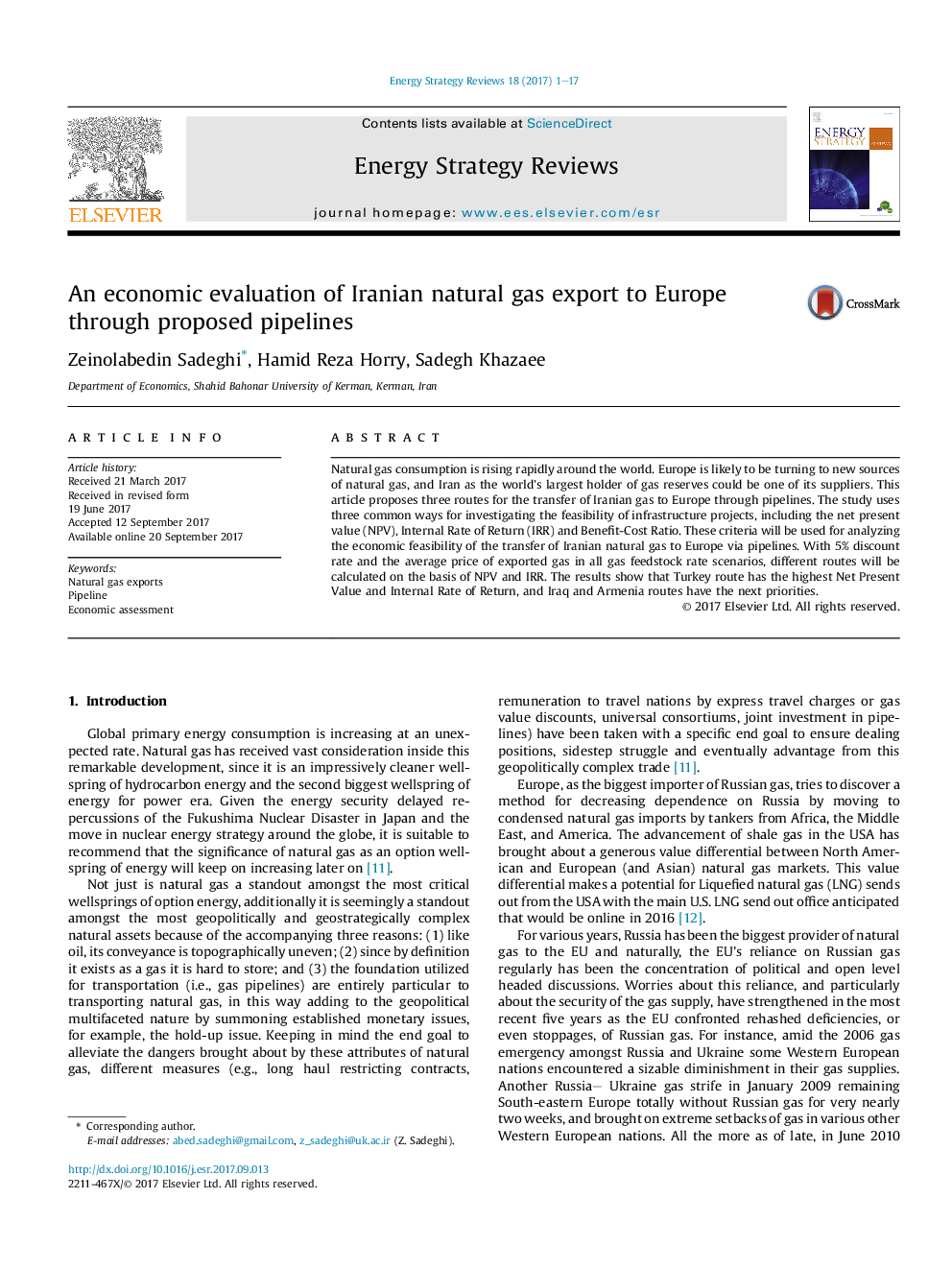| Article ID | Journal | Published Year | Pages | File Type |
|---|---|---|---|---|
| 5111400 | Energy Strategy Reviews | 2017 | 17 Pages |
Abstract
Natural gas consumption is rising rapidly around the world. Europe is likely to be turning to new sources of natural gas, and Iran as the world's largest holder of gas reserves could be one of its suppliers. This article proposes three routes for the transfer of Iranian gas to Europe through pipelines. The study uses three common ways for investigating the feasibility of infrastructure projects, including the net present value (NPV), Internal Rate of Return (IRR) and Benefit-Cost Ratio. These criteria will be used for analyzing the economic feasibility of the transfer of Iranian natural gas to Europe via pipelines. With 5% discount rate and the average price of exported gas in all gas feedstock rate scenarios, different routes will be calculated on the basis of NPV and IRR. The results show that Turkey route has the highest Net Present Value and Internal Rate of Return, and Iraq and Armenia routes have the next priorities.
Keywords
Related Topics
Physical Sciences and Engineering
Energy
Energy (General)
Authors
Zeinolabedin Sadeghi, Hamid Reza Horry, Sadegh Khazaee,
